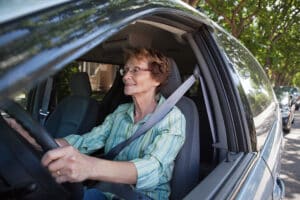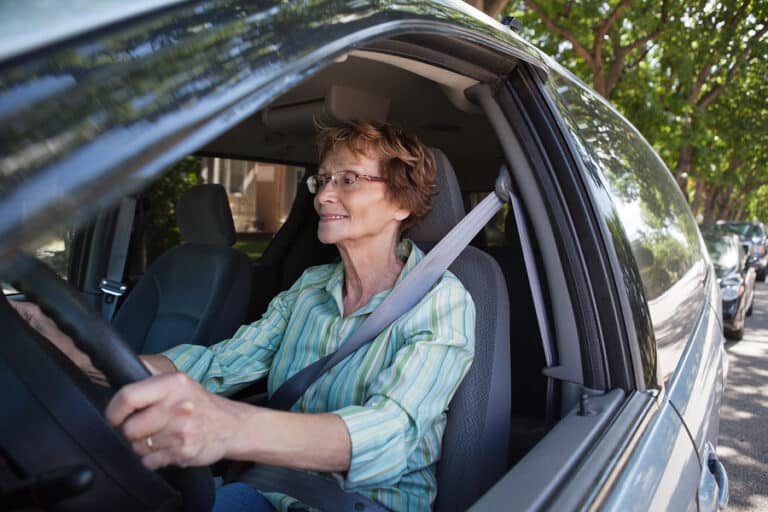For most aging adults the ideas of maintaining independence and continuing to drive go hand in hand. The idea of driving might be an important one for her, but if she’s no longer safe to drive, that’s another issue altogether.
Safer Cars Make Safer Drivers

To help your senior to be safer behind the wheel, your first step is to make sure her car is as safe as possible. Regular maintenance can prevent a variety of mechanical problems, even for an older car. Get the oil changed, check the fluids, and keep up with what needs to be done when. If the car is simply not safe for her any longer, it might be time to upgrade her to a newer ride.
Regular Exercise Can Make a Difference
Regular exercise helps your senior to build her strength, to maintain her flexibility, and to keep blood flow going. All of this is a vital part of keeping her safer as she’s driving. If she sees no reason to exercise, remind her that professional drivers work out a great deal and they do so simply because of the toll that driving can take on their bodies. Make sure that you clear any exercise regimen with her doctor before she starts.
Talk to Your Senior’s Doctor about Her Driving
While you’re talking to your senior’s doctor about her exercise plans, open a dialogue as well about whether your senior is healthy enough to continue driving. Some issues like vision problems, high blood pressure, and cognitive changes can be deal breakers when it comes to driving. It’s best to get a medical “all clear” on driving for your senior to keep going.
Look into Senior Driving Classes
Senior defensive driving courses are another option. They remind your aging family member how she can make better decisions behind the wheel. Some of these concepts might be ones your senior needs a light refresher on, while others might be new ideas for her. A big bonus is that some car insurance companies give discounts for completing these types of courses.
Talk about Limiting Her Driving
Your senior may be open to the idea of limiting her driving, particularly under specific conditions. For instance, if driving at dusk is difficult for her, then having home care providers take over for those trips can help both of you to rest easier. Keep in mind that this isn’t about placing restrictions on your senior just to control her actions. This is about her agreeing to drive only when it’s safe for her to do so and seeking alternatives when it isn’t.
Make sure that you’re not approaching this topic in an adversarial way with your senior. Doing so is likely to cause a great deal of strife that you could avoid by choosing a non-confrontational approach.
Excerpt: If your elderly family member is still driving, she needs to do so as safely as possible.
If you or an aging loved one are considering hiring Home Care in Seneca, SC, contact Heart of the Carolinas Home Care at 864-991-3116. Providing Home Care Services in Greenville, Simpsonville, Greer, Anderson, Spartanburg, Mauldin, Seneca, Laurens, Charleston, Columbia and the surrounding areas.
- 5 Ways Seniors Can Protect Themselves From Scams - July 26, 2024
- Five Tips for Putting Together a Home Safety Checklist for Seniors - July 10, 2024
- Understanding Spinal Stenosis - June 17, 2024

